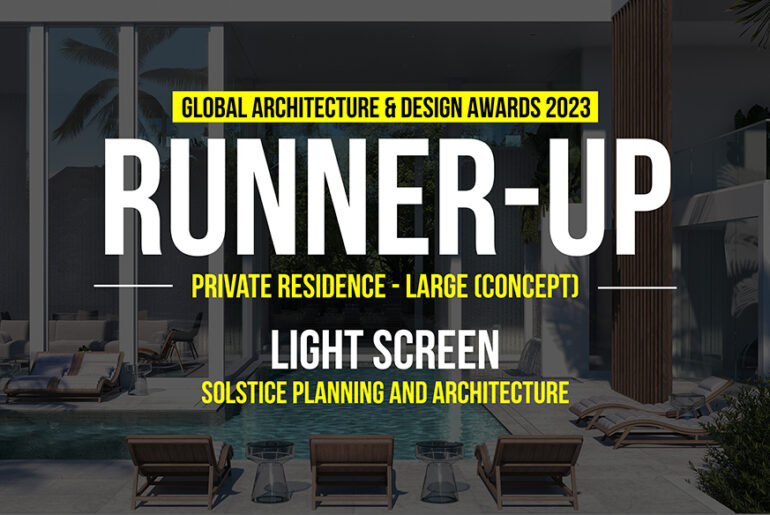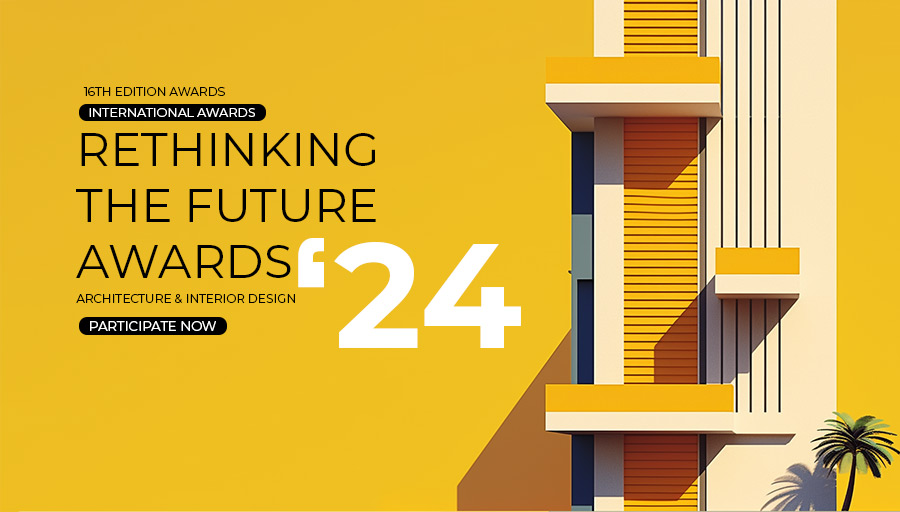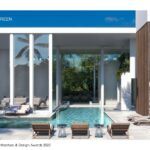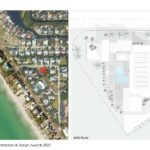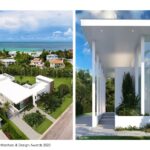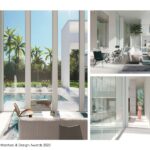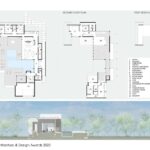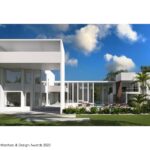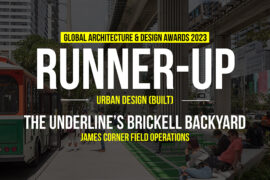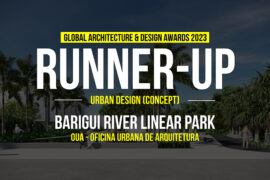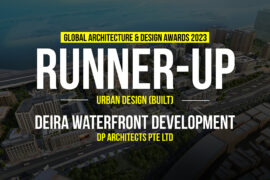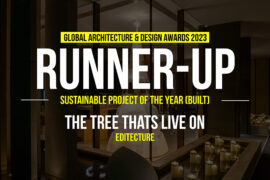This 3,200 sf single-family residence is located on an atypical triangular-shaped property adjacent to a substantial undeveloped platted street on Longboat Key, Florida. The project was conceived as a new primary residence for a young northeastern couple relocating to Florida. Their interests were to have this be both a home and a retreat for family and friends to come over and visit for extended periods of time.
Global Design & Architecture Design Awards 2023
Second Award | Private Residence (Large) (Concept)
Project Name: LightScreen
Category: Private Residence (Large) (Concept)
Studio Name: SOLSTICE Planning and Architecture
Design Team: Jonathan Parks AIA (Architect + Principal Designer), Kevin Bryon RA, Chris Chudy AIA, Katrina Solomon Allied ASID, Julia Kantor
Area: 4100 sq. ft.
Year: Est. 2025
Location: Longboat Key, FL 34228
Consultants: Michael A. Gilkey, Inc. (Landscape Architect), Russel Rowland (Structural Engineer)
Photography Credits: Courtesy SOLSTICE Planning and Architecture
Render Credits: SOLSTICE Planning and Architecture
Other Credits:
The resulting design is based on the establishment of specific project targets:
- Maximize design opportunities coming from the island location and odd shape of property.
- Environmental sustainability and resiliency
- Compose the house to provide privacy from neighboring residences and to accommodate long term guests.
- Straightforward material palette
The resulting project is a site-specific expression of regional modernism that responds to Southwest Florida’s harsh tropical climate and sun. The property dictated that the long axis of the residence is oriented north-south, unlike neighboring structures. Due to this orientation, eastern and western heat gain had to be controlled. The eastern façade is shielded by a large, fixed canopy that provides passive shading, reducing heat gain by 70%. The southern and western facades incorporate operable vertical and horizontal sunscreens, allowing the owner to control what is opened and by how much (0%-100%).
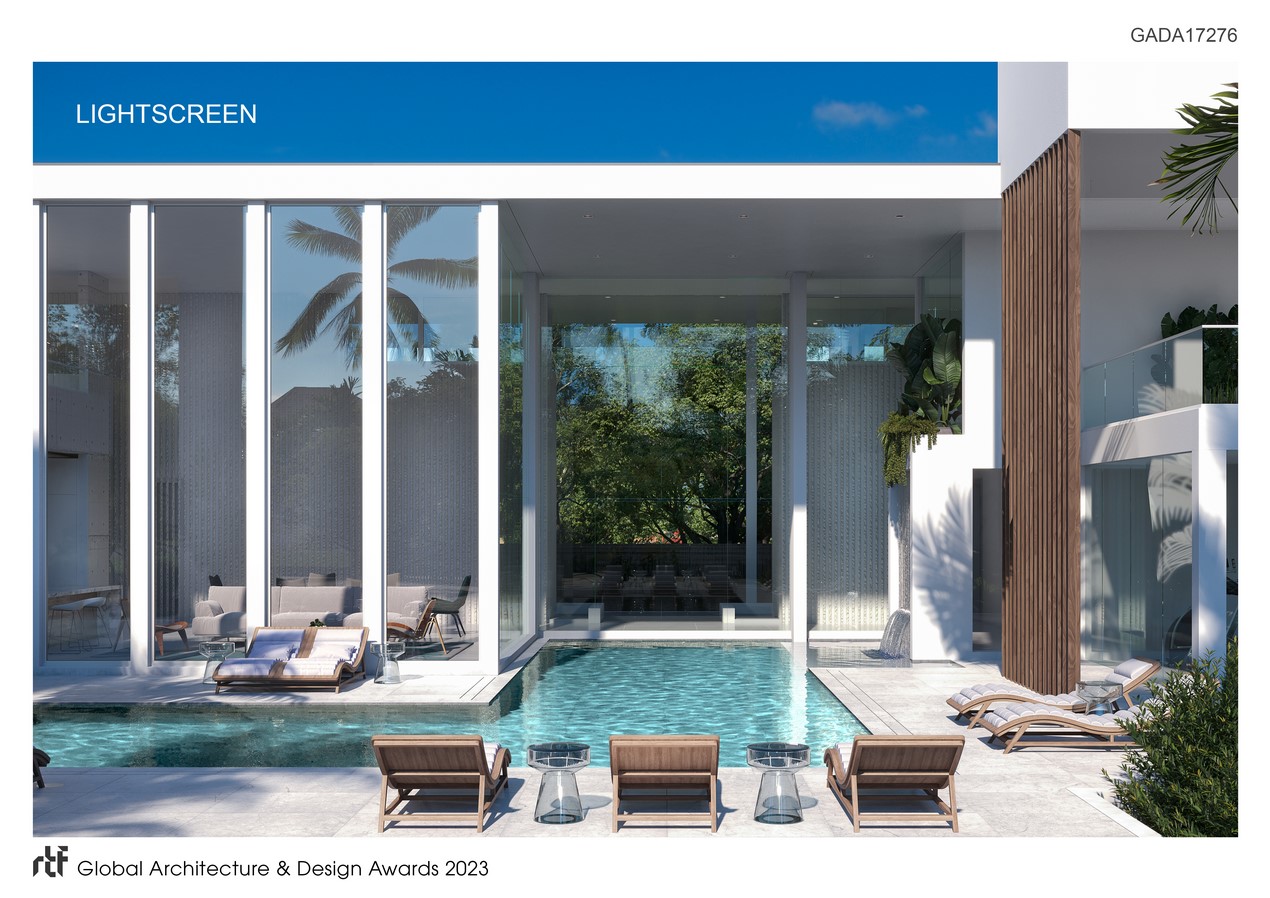
Sustainability goals included reducing dependency on the power grid with a focus on nature. The result uses as many passive systems as possible (natural daylighting, ventilation, shading) as well as the integration of active systems (solar energy capture, recycling/renewable materials, water collection, indoor air purification, and data system integration/automation). LEED Platinum certification is anticipated. Addressing risks from hurricanes and environmental change, the property is in an AE floodzone which requires the first floor to be elevated 10’ above sea level, but the entire project was elevated an additional 2’ to protect it from potential flooding.
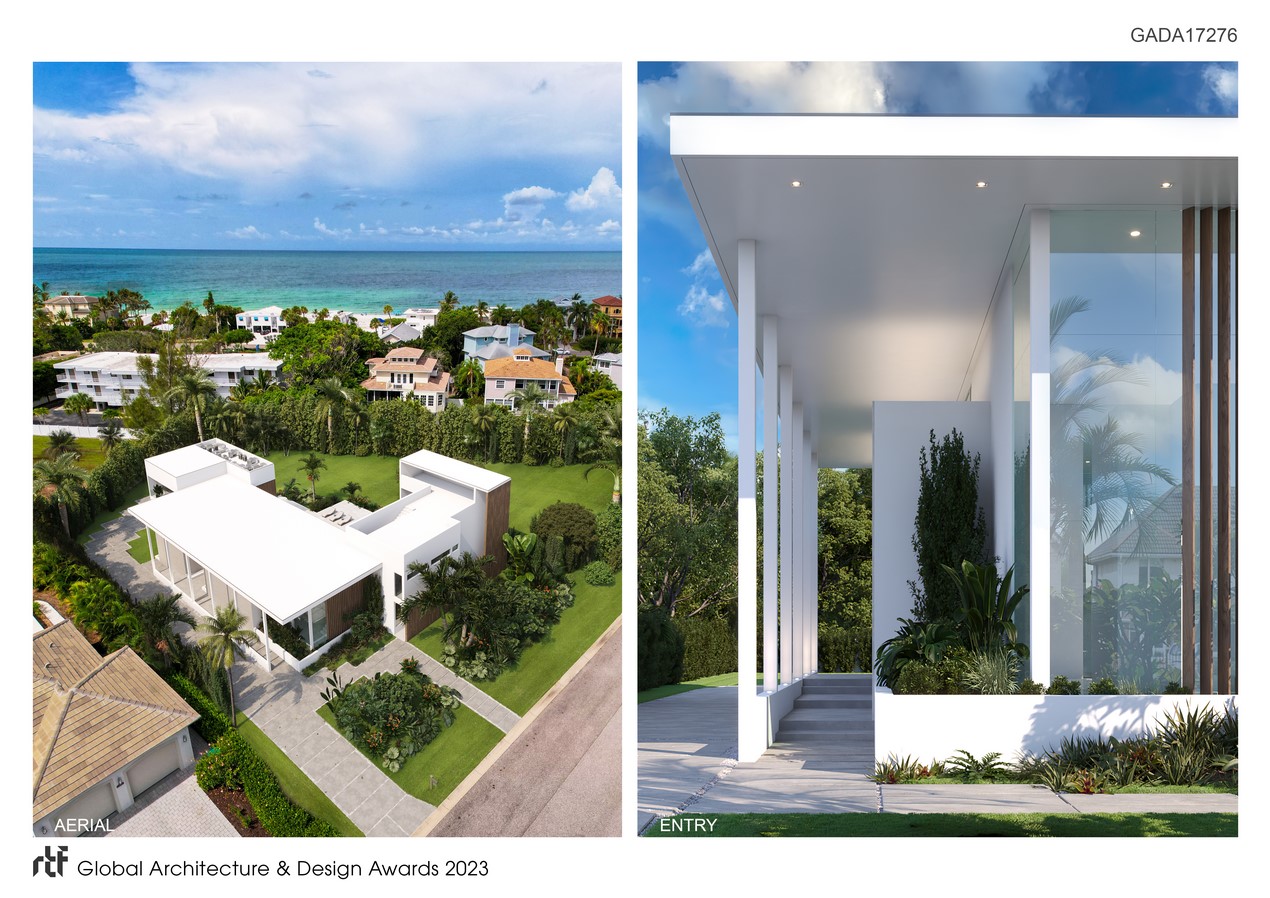
With neighbors on three sides, the strategy was to create an inner sanctuary centered on the property’s own water features. A central pool establishes a grid for living, transcending the triangular-shaped property and creating a partnership between the natural setting and interior spaces. Once inside, full-height windows and two-story volumes emphasize the connection to the pool courtyard. Public areas revolve around the water while more private areas are split between the north and south – as far as possible from entertainment areas. An elevated west-facing rooftop deck provides a Gulf view.
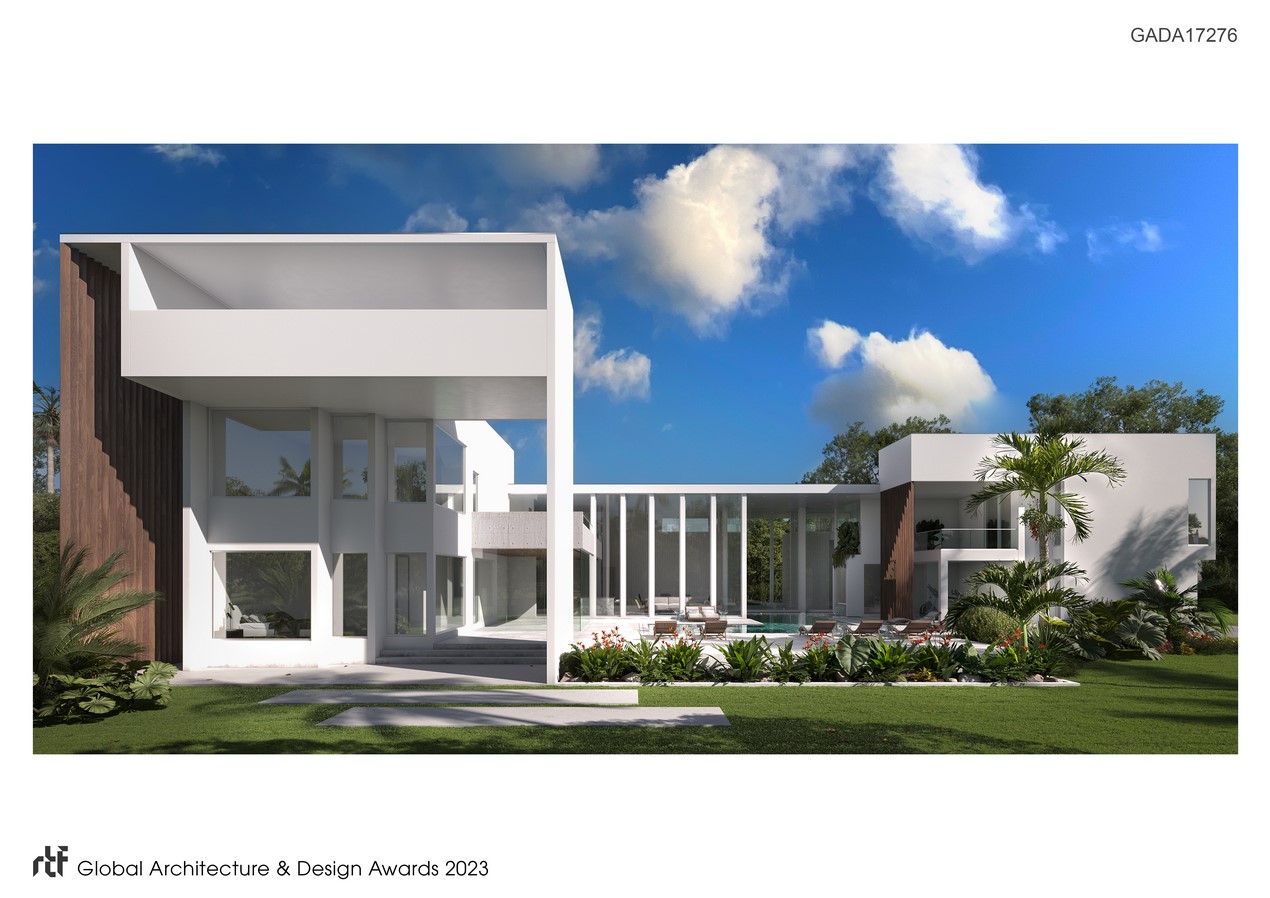
The building palette is limited to five materials: concrete, wood, steel, aluminum, and impact-resistant glass, and the landscape design includes only Florida-native plants. Purposefully built on a grid for reducing construction waste, the project explores the properties of concrete through its implementation in various forms.
Through the careful planning of public and private spaces along with strategies for sustainability and resiliency, the project design will transform a difficult site into a modern oasis for living.

